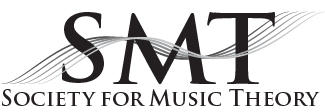Commentary on Neumeyer’s MTO 0.1 article
Robert Judd
REFERENCE: mto.93.0.1.neumeyer.php
Copyright © 1993 Society for Music Theory
[1] David’s essay has a couple of “spikes” of its own at the end ([19–20]). Two things, somewhat distinct, struck me. 1) “I suppose it is no secret that [music theorists’] language or methods are not designed to facilitate judgments of value, but only to support them after they have been made. Perhaps the most far–reaching implication [of the essay] is that the link between the tools of technical musical criticism and the ideology of masterwork culture is not at all secure.” If the first sentence is true, the second is also no secret at all. Surely it is axiomatic that one’s direction at point of departure determines where one goes? Value judgements would seem to fall under the subject of aesthetics, and I wonder why DN didn’t talk more about issues of aesthetics in the essay. (Or, for that matter, issues of cognition: how one sound is perceived to “mean” or be apt for some given dramatic event.)
[2] 2) I also wonder why DN didn’t raise the issue of opera composition; I hope it’s not too banal to draw attention to the close genre–relation of film music and opera music: indeed, opera seems even better suited to a discussion of how music supports a desired “physical” mood, or how music interacts with drama. Perhaps you could comment, David?
[3] I agree with the final spike, “where’s the real tinsel?” Indeed, it’s not such a black–and–white, pop vs. masterwork culture, thing, as we all know. E.g., I may choose to study “pop” opera, e.g. Madame Butterfly; you may choose “masterwork” opera, e.g. Salome. Which is tinsel? obvious. Why? depends on your ideology. But we could also group Salome AND Madame Butterfly as “masterwork” compared to “Showboat”, couldn’t we?
[4] Therefore, could perhaps a finer delineation of types of cultures and ideologies than DN’s binary one be drawn up? If not, why not?
[5] Thanks again for getting this stuff going. I found it most interesting, & hope others too will offer some reactions.
Robert Judd
robert_judd@zimmer.csufresno.edu
Copyright Statement
Copyright © 1993 by the Society for Music Theory. All rights reserved.
[1] Copyrights for individual items published in Music Theory Online (MTO) are held by their authors. Items appearing in MTO may be saved and stored in electronic or paper form, and may be shared among individuals for purposes of scholarly research or discussion, but may not be republished in any form, electronic or print, without prior, written permission from the author(s), and advance notification of the editors of MTO.
[2] Any redistributed form of items published in MTO must include the following information in a form appropriate to the medium in which the items are to appear:
This item appeared in Music Theory Online in [VOLUME #, ISSUE #] on [DAY/MONTH/YEAR]. It was authored by [FULL NAME, EMAIL ADDRESS], with whose written permission it is reprinted here.
[3] Libraries may archive issues of MTO in electronic or paper form for public access so long as each issue is stored in its entirety, and no access fee is charged. Exceptions to these requirements must be approved in writing by the editors of MTO, who will act in accordance with the decisions of the Society for Music Theory.
This document and all portions thereof are protected by U.S. and international copyright laws. Material contained herein may be copied and/or distributed for research purposes only.
Prepared by Natalie Boisvert, Cynthia Gonzales, and Rebecca Flore, Editorial Assistants
Number of visits:
669

